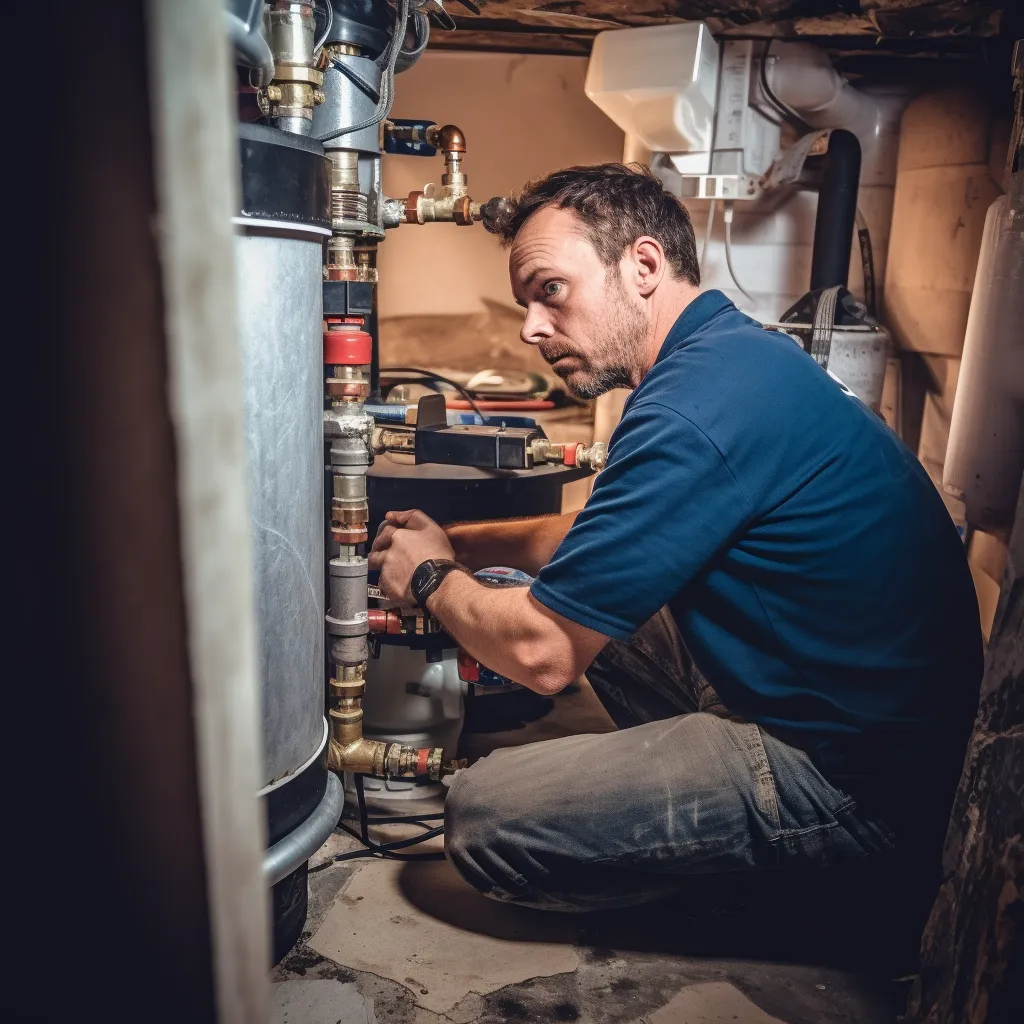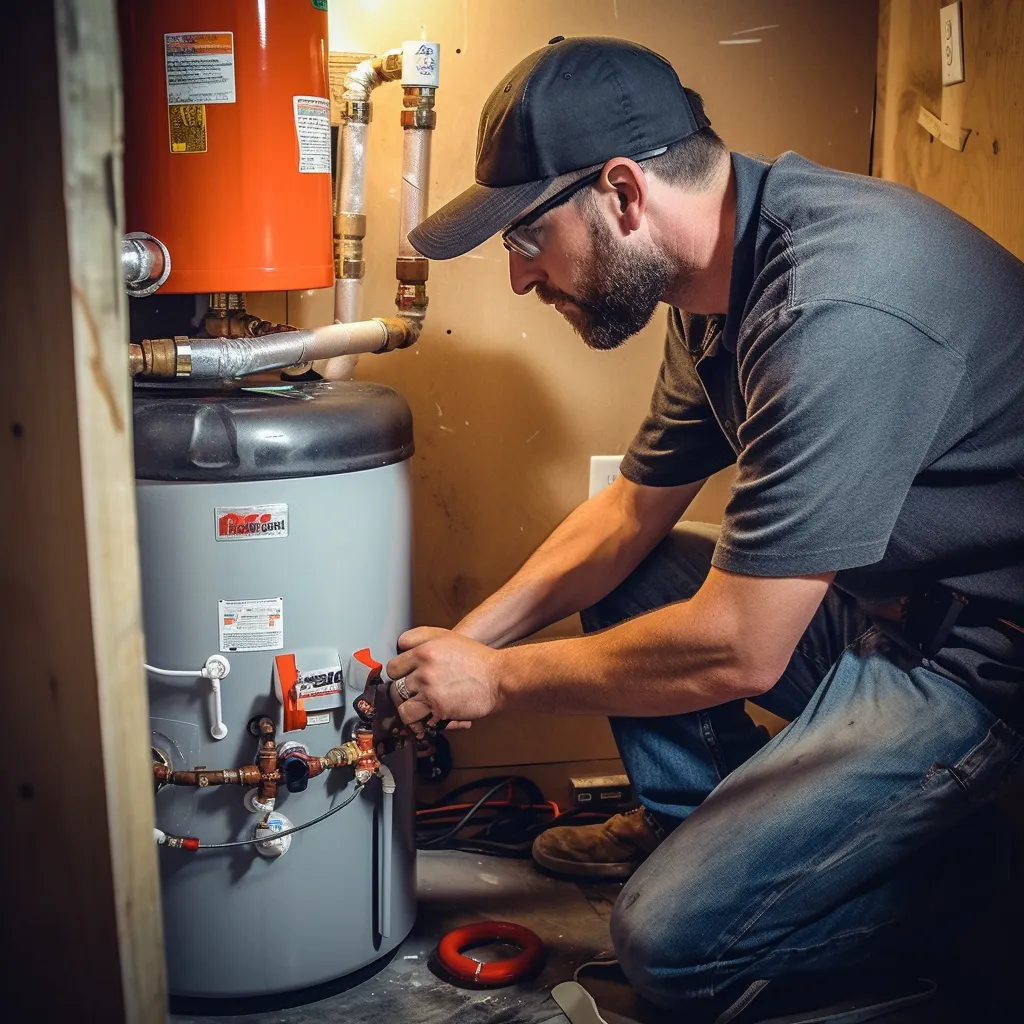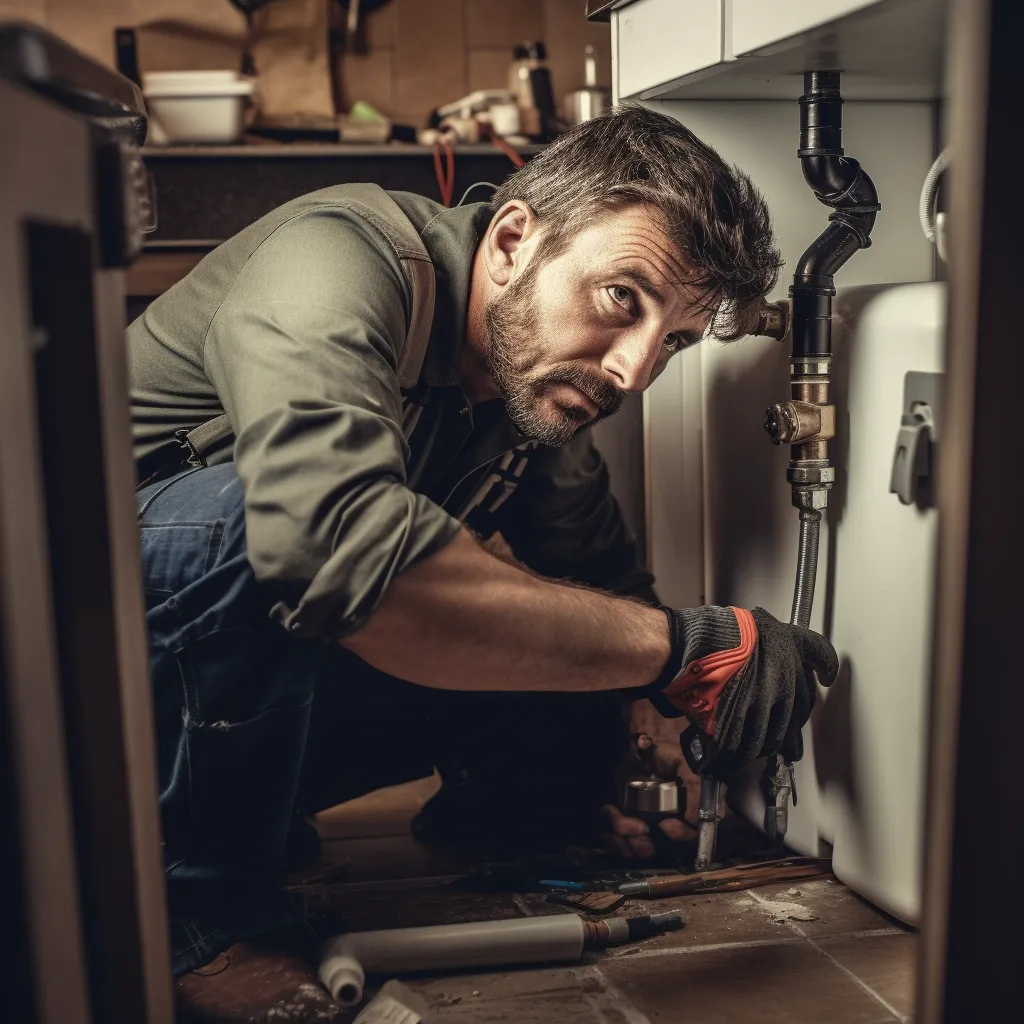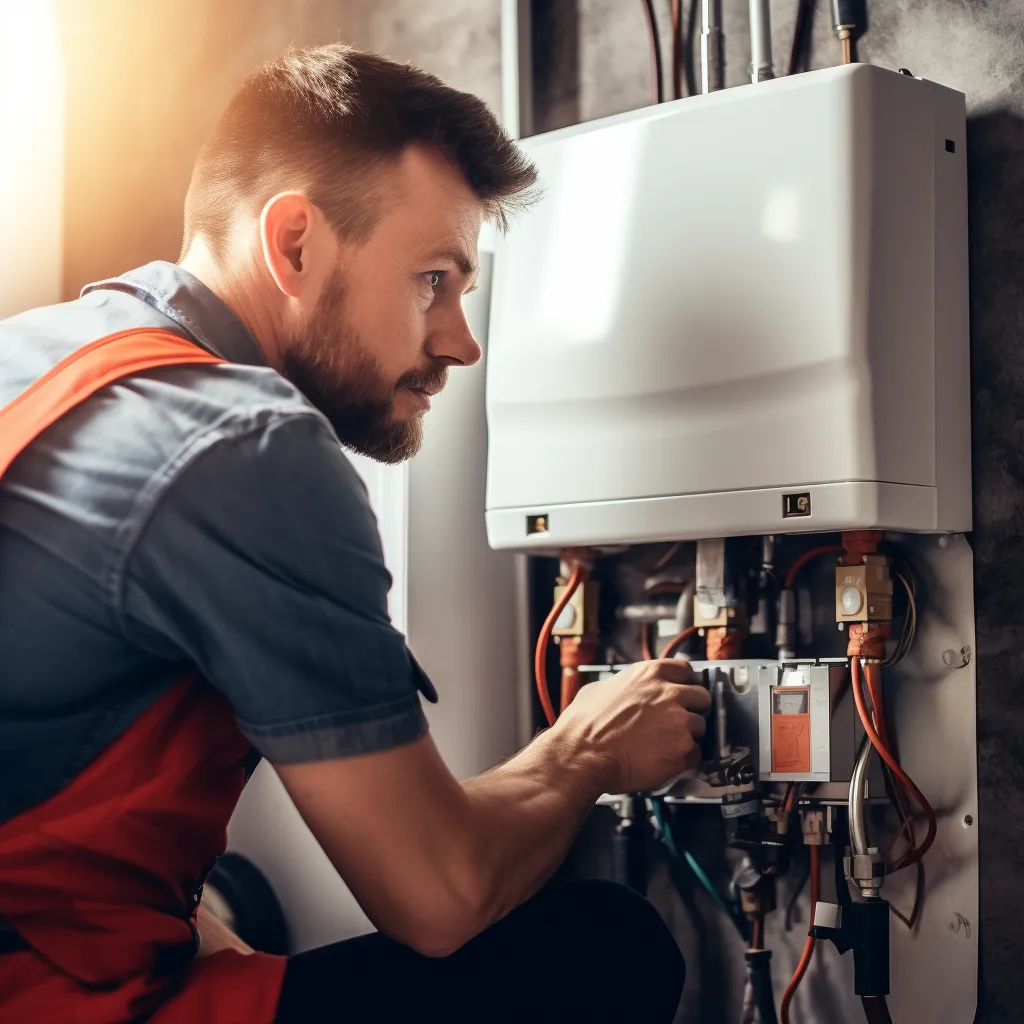How Often Do Water Heaters
Need to be Replaced?
Maintaining your water heater is crucial for its optimal performance and longevity. Neglecting regular maintenance can lead to reduced efficiency, higher energy costs, and potential breakdowns. In this guide, we will provide you with essential tips on how to maintain your water heater and keep it in excellent condition. From flushing the tank to checking the pressure relief valve and inspecting the anode rod, we will cover all the necessary steps to ensure your water heater operates efficiently and provides you with a reliable supply of hot water. Don't underestimate the importance of proper maintenance - it can save you from costly repairs and extend the lifespan of your water heater.

How long do water heaters last?
Hot water heaters are essential appliances in our homes, providing the hot water we need for various daily tasks. However, like any other appliance, they have a limited lifespan. On average, a hot water heater will last between 8 and 12 years, depending on factors such as usage, maintenance, and the quality of the unit. It's important to keep track of the age of your water heater and be prepared for its eventual replacement. By being proactive and considering factors like efficiency, size, and energy savings, you can choose a new water heater that meets your needs and ensures a reliable supply of hot water for years to come.
Tankless water heaters have a longer lifespan compared to traditional units.
Inadequate installation or neglecting maintenance can significantly shorten the lifespan of a water heater.
Consistent upkeep and regular inspections are essential to maintain efficiency and prolong the lifespan of your water heater.
Excessive daily usage and high levels of hard water can expedite wear and tear on your unit, compromising its long-term effectiveness.
Considering water softening options or using a water softener can help mitigate the negative effects of hard water and extend the lifespan of your water heater.


Do you have the budget for a new hot water heater?
When choosing a water heater for your home, it's important to consider your specific needs and preferences. Factors such as the size of your household, hot water usage, energy efficiency, and budget should all be taken into account. Additionally, researching and comparing different brands and models can help you find a water heater that meets your requirements and provides optimal performance. By making an informed decision, you can ensure a reliable and efficient hot water supply for your home while maximizing energy savings.

Replacing a water heater is a big decision
When considering a water heater replacement, it's crucial to evaluate the various options available and make an informed decision based on your specific needs. Factors such as energy efficiency, capacity, and cost should be carefully considered. Older water heaters that require frequent repairs or are nearing the end of their expected lifespan may benefit from being replaced with a more efficient model. By upgrading to a new water heater, you can enjoy improved performance, lower energy consumption, and potential cost savings in the long run. Consulting with a professional can help you select the best water heater for your home and ensure a smooth and efficient replacement process.

How to extend the lifespan
of your water heater
Regular maintenance is essential for the longevity and efficiency of your water heater. Keep an eye out for leaks and corrosion, and address them promptly.
These practices will help extend the life of your water heater and ensure optimal performance.

Regularly flush the tank to prevent sediment buildup and maintain efficiency.
Check the temperature and pressure relief valve (TPR valve) to ensure proper functionality and safety.
Insulate your water heater and its pipes to minimize heat loss and improve energy efficiency.
Regularly inspect your water heater for leaks or signs of dripping water and address them promptly.
To maximize the lifespan of your water heater, regular maintenance is crucial. This includes inspecting for leaks, rust, and corrosion, scheduling professional checks, flushing the tank to remove sediment buildup, adjusting temperature settings, insulating the tank and pipes, and following manufacturer guidelines.

Address
any malfunctions
Regular maintenance is key to ensuring your water heater operates efficiently and lasts longer. When you notice any issues like inadequate hot water or unusual noises, it's important to address them promptly. Contacting a specialist for timely repairs can help extend the lifespan of your water heater and save you money in the long run.
Signs it's time to get a new water heater
Water heaters, like any mechanical device, have a finite lifespan. Over time, they may show signs of wear and inefficiency, indicating the need for a replacement.
If you notice these signs, it's advisable to consider replacing your water heater to ensure optimal performance and avoid unexpected failures. Consulting with a professional can help you determine the best course of action based on your specific situation.

Age: If your water heater is over 10 years old, it's worth considering a replacement as most have a lifespan of 10-15 years.
Strange Noises: Popping or gurgling sounds coming from your water heater may indicate the need for a new tank.
Leaks: Water pooling around the base of the water heater suggests a leak that requires attention.
Inconsistent Heating: Frequent hot water outages or inconsistent heating can signal a malfunctioning water heater that may need to be replaced.
Increased Energy Consumption: A faulty water heater can lead to higher energy consumption and bills. A sudden spike in energy costs may prompt a replacement.
Frequent Repairs: If you find yourself frequently needing repairs, it may be more cost-effective to invest in a new, reliable unit.
Rust or Corrosion: Rusting or corroded areas on or around the water heater indicate decreased functionality and may require a replacement.
Unusual Taste or Odor: If your hot water has an unusual taste or odor, it could be a sign of a water heater problem, warranting consideration for replacement.
Insufficient Hot Water: Consistently inadequate hot water supply for your household's needs is a strong indication that a replacement is needed.

By being aware of these warning signs and taking action when necessary, you can make an informed decision about replacing your water heater. This proactive approach will help ensure a reliable supply of hot water for your home and prevent any potential issues or inconveniences in the future.
What is the cost of replacing
a water heater?
Several factors contribute to the overall cost of replacing a water heater:

Type of water heater: The cost of replacing a water heater can vary depending on the type you choose, such as tankless, storage tank, or heat pump water heaters.
Size and capacity: The size and capacity of the water heater can affect the cost. Larger units generally have higher prices compared to smaller ones.
Installation requirements: Factors like the complexity of the installation, accessibility of the installation area, and any necessary modifications can impact the overall cost.
Energy efficiency: Energy-efficient water heaters may have a higher upfront cost but can result in long-term savings on energy bills.
Additional features: Certain features, such as digital controls or advanced safety features, can increase the price of the water heater.
Brand and quality: The brand and quality of the water heater can influence the cost, with well-known and reputable brands typically commanding higher prices.
Location: The cost of replacing a water heater can also vary based on your geographic location and local market factors.
Replacing a water heater can be a significant investment, and the costs involved can vary depending on several factors. For standard electric water heaters, the replacement costs typically range from $500 to $2,500. On the other hand, repair costs for tankless water heaters can be higher, ranging from $1,000 to $3,500.
Given the substantial expenses associated with water heater replacement, it is worth considering the long-term benefits. Opting for a high-quality unit can lead to reduced utility bills and improved energy efficiency, making it a worthwhile investment in the long run
Common frequently asked questions about replacing and installing a water heater
When it comes to water heater replacement and installation, there are several frequently asked questions that can provide valuable guidance. Here are a few of them:
What is the average lifespan of a water heater?
How do I know if my water heater needs to be replaced?
What factors should I consider when choosing a new water heater?
What are the different types of water heaters available?
How much does it cost to replace a water heater?
Can I install a water heater myself, or should I hire a professional?
When it comes to water heater replacement or installation, it's important to consider your individual needs. Consulting licensed plumbers is crucial as they can provide reliable guidance based on their expertise. They can assist you in selecting the right size and type of water heater that best suits your home's requirements.
How you can save money
when replacing a hot water heater
There are ways to save money without compromising on the quality or performance of the new unit. Consider the following money-saving tips:

Conduct thorough research to find the best water heater option for your home, considering both standard electric models and tankless systems.
Prioritize energy efficiency by choosing a water heater with a high Energy Factor (EF) rating, which will result in long-term cost savings.
Compare prices from different retailers and suppliers to ensure you get the best deal on your water heater purchase.
Take advantage of any rebates and incentives offered by your state for purchasing energy-efficient water heaters to further reduce the overall cost.
Consider the long-term benefits of energy savings when deciding between a tankless water heater and a standard electric model.

Why you should hire a professional
instead of going DIY
Choosing professional installation for your new hot water heater is a wise decision that can save you money and ensure a successful installation. Professionals have the necessary expertise and knowledge to handle the installation process correctly, following all codes and regulations. Additionally, professional installations often come with warranties, providing added protection and peace of mind. While a DIY approach may seem tempting, it can lead to costly errors and potential problems down the line. Invest in professional installation to avoid unnecessary expenses and ensure a smooth and efficient operation of your new water heater.

Tips on finding a water heater professional for installation
When hiring a licensed professional for water heater installation, it's important to keep these key points in mind:

Qualifications and Experience
Reputation and Reviews
Cost Estimates
Warranty and Guarantees
Timelines and Scheduling
Insurance and Liability
References
Contact Us
GET IN FULL TOUCH
PHONE: (267) 715-3102
EMAIL:
tyler@waterheatersphiladelphia.com
Water Heaters Philadelphia
Philadelphia, PA 19147
